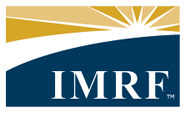IMRF Trustees and staff shall not:
- accept a gift having a value over $25 or solicit any gift, favor, or service from any third party which has, is or may do business with the Illinois Municipal Retirement Fund;
- accept other employment or engage in a business or professional activity that they reasonably expect would require or induce them to disclose confidential information acquired by reason of their official position;
- accept other employment or compensation that could reasonably be expected to impair their independence of judgment in the performance of their official duties;
- make personal investments that could reasonably be expected to create a substantial conflict between their private interests and the interests of the plan participants and beneficiaries; provided, however, no trustee or staff member is precluded from making any personal investment that will not create a substantial conflict.
- intentionally or knowingly solicit, accept, or agree to accept any benefit for having exercised their official powers or for having performed their official duties in favor of another;
- transact any business in their official capacity with any entity or person in which they have an economic interest;
- appear before the body of which they are a member while acting as an advocate for himself or any other person, group, or entity;
- represent any business entity before the Board of Trustees, for pay;
- represent, directly or indirectly, any business entity in any action or proceeding against the interest of the Board of Trustees, or in any litigation in which the Fund is a party;
- use their official position to secure a special privilege or exemption for themselves or others or to secure confidential information for any purpose other than official duties; on
- intentionally or knowingly disclose any confidential information gained by reason of their position concerning the property, operations, policies or affairs of the Board of Trustees, or use such confidential information for pecuniary gain;
- represent a firm or solicit business on behalf of a firm (including affiliates) for whom he or she previously voted in favor of entering into a business relationship or negotiated or signed a contract binding IMRF for a period of two (2) years following the term of office or employment;
- solicit donations for charities, not for-profit organizations and other causes from any person, organization or entity which does, has done or may do business with IMRF, including but not limited to, investment advisors and managers;
- solicit or accept political contributions or donations for himself or herself or others from any person, organization or entity which does, has done, or may do business with IMRF, including but not limited to, investment advisors and managers; nor may he/she solicit or accept political contributions or donations from employees or IMRF;
- profess or imply that he/she has the endorsement of IMRF with respect to any candidacy for which he or she is running;
- accept free travel or accommodations from any third party which has, is or may do business with the Illinois Municipal Retirement Fund; or
- accept free attendance at any educational conference or business-related function, the cost for which has been paid directly or indirectly by any third party which has, is or may do business with the Illinois Municipal Retirement Fund; or
- accept food or refreshments exceeding $75 per person per day in value from any third party which has, is or may do business with the Illinois Municipal Retirement Fund; or
- accept meals on an individual basis from any third party which has, is or may do business with the Illinois Municipal Retirement Fund unless such meal arises out of independent activities not related to the person’s role with the Illinois Municipal Retirement Fund or unless it is a staff member on Fund business under the $75 limit set forth above.
Interpretation of Policy (Determination of Substantial Interest)
An individual has a substantial interest in a business entity if he or she or his or her spouse:
- has a controlling interest in the business;
- owns more than 10 percent of the voting interest in the business entity;
- owns more than $25,000 of the fair market value of the business entity;
- has a direct or indirect participating interest by shares, stock, or otherwise, regardless of whether voting rights are included, in more than 10 percent of the profits, proceeds, or capital gains of the business entity;
- is a member of the board of directors or other governing board of the business entity;
- serves as an elected officer of the business entity; or,
- is an employee of the business entity.

